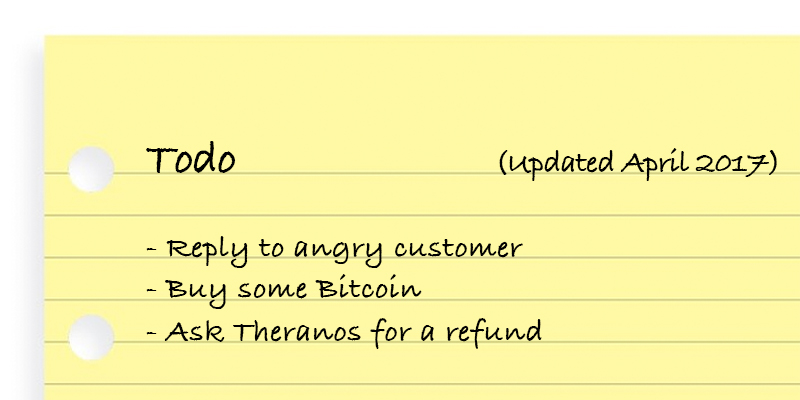if you’ve ever kept a todo list you know one thing: it only gets bigger, never smaller. cue conservatives voting for “small govt” politicians.
first we read books about why we should have a todo list, then we read about how to make todo lists, and finally on why to ignore or throw away our todo lists.
the first group of books is for people who never accomplish anything. the second group is for folks who aren’t as productive as they’d like. the third tranche of books is for the enlightened ones wondering “now what?“
in any case, neglected items on our new, old, or dusty todo lists are collectively known as the backlog.
your backlog
there’s a scene in some comedy show whose title i can’t remember. but the main character makes a lot of money. then another guy says to him, “what are you going to do now?” to which he replies, “finally get that boat.“
even though i watched this as a dumbass 14 year old who never held a job in his life, i still felt the visceral humor of the exchange.
your backlog could be anything from “clean the gutters” to “get that boat” to “leave my husband,” i’m not sure. but it exists, and you ought to acknowledge it. explanation forthcoming.
out of sight, out of mind
… this is a lie. i can’t see the guitars or legal documents or custom AR-15 sitting in my storage unit in Austin, Texas. but i think about them constantly.
and this thinking has a price. it costs time, sure, but also attention. it even has an opportunity cost: an empty mind.
minimalism is the realization that the more stuff you own, the more your stuff owns you. this reveals itself through monthly payments, maintenance, and effort spent not tripping over things as you walk to the bathroom at 4am.
digital minimalism is the realization that minimalism applies to a lot more than physical objects. it’s files on your desktop, un-labeled emails, and untitled spreadsheets in the root folder of your Google Drive.
anxiety and stress aren’t simply byproducts of your todo list. they come from what used to be on your todo list. backlogs have a price.
on execution
execution has two very different meanings: killing, and doing. sometimes we Kill the items on our backlog, sometimes we Do them. is this right?
think. after Killing a task — say “write restaurant review” — it’s gone. but after Doing the task we help foodies, boost our Yelp/Google status, and it’s gone.
so Doing is better than Killing, because doing is also killing.
it’s strange to consider how we buy (Do) and read (Do) self-help books that teach us to Kill (not do anything).
second order consequences of action
what’s never sat right with me about Killing tasks is how it only solves for the short-term. Naval once said:
so how is it that much of the self-help category recommends we do the opposite of what self-help (long term > short term) embodies?
those in defense of Killing over Doing might say, “the problem with doing that ‘one’ little task is it begets more tasks.”
and this is exactly right. but what if those begotten tasks are part of the journey toward your Main Thing? you’ll never find out if you Kill it.
my backlog
a few tasks i’ve been neglecting (yes really):
- finish writing a screenplay
- watch 3 boring legal documentaries
- code new features on a free side project
- watch more lectures of a course i bought
these tasks have been staring at me, literally, for months. i open my notepad app and bam, i’m reminded of my inadequacy.
but this week after a solid #2 in the bathroom, everything i said above about how backlogs beget opportunities hit me. instantly i knew i needed to a) write about it and b) practice what i preach.
(the poo was 25 mins ago in case you’re curious)
experiment
over the next 30 days i’m dedicating 1 hour every afternoon to chipping away at my backlog. sometimes i’ll Kill, sometimes i’ll Do, with a bias for doing.
this means writing scripts and code. watching lectures and films. buying random knicknacks for the house. going through my wardrobe and throwing away Vans socks with holes in the toes.
none of these tasks are my Main Thing (writing music, learning Korean), and that’s the point.
at the end of this project i suspect i’ll feel more accomplished, be more well-rounded, have more opportunities (second order consequence of action), and most importantly live with a freer mind.
perhaps this essay’s TLDR: the only way out is through.
